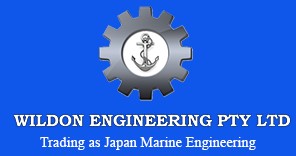Exploring the Role of Heat Exchangers and Coolers in Marine Vessel Efficiency
Blog | July 24th, 2023Discover the role of heat exchangers and coolers in marine vessel efficiency. Optimize performance & sustainability. Learn more!
Heat exchangers and coolers are two equipment pieces that play a critical role in enhancing the efficiency of marine vessels by facilitating the exchange of heat between different fluids.
Marine vessels often rely on heat-generating systems like engines, generators, and auxiliary machinery to produce significant amounts of heat during their operation. To ensure their performance, reliability, and fuel efficiency will be optimised, ship owners have to maintain efficient heat management on their marine vessels. And the only way to do this is to invest in the right heat exchangers and coolers.
Here are some ways heat exchangers and coolers help maintain marine vessel efficiency.
Cool the Engines
One way heat exchangers and coolers help maintain the efficiency of marine vessels is to cool the engines. The main propulsion engines of marine vessels release tons of heat during combustion. Once heat exchangers and coolers are installed, they can help regulate the engine temperature by transferring excess heat to seawater or freshwater. In the long run, these components can improve engine efficiency, prevent overheating, and extend engine life.
Recover Exhaust Gas Heat
Heat exchangers can also help optimise marine vessel efficiency by capturing the heat from the exhaust gases. As they capture the heat, they transfer it to a working fluid like water or oil. The recovered heat can be used to preheat combustion air, heat fuel, or generate more power through steam turbines or waste heat recovery systems. Aside from improving marine vessel efficiency, heat exchangers help in reducing fuel consumption as they harness wasted heat.
Cool Fuel Oil
Marine vessels take advantage of various components to ensure they can work optimally. One of these components is fuel oil. For this component to be helpful, it should maintain the right operating temperatures. Heat exchangers and coolers can, fortunately, be utilised to cool and maintain the optimal temperature of the fuel oil before it enters and goes to the engine. These components help reduce the risk of fuel degradation due to temperature discrepancies.
Cool Lubricating Oil
Similar to fuel oil, lubricating oil should also maintain the right temperature before it enters varying parts of a marine vessel. With the integration of heat exchangers and coolers, this type of oil can be cooled to maintain its optimum temperature range. These components work by removing excess heat from the lubrication system, which helps in preventing oil degradation and maintaining the viscosity of the lubricant.
Regulate HVAC Systems
The heating, ventilation, and air conditioning (HVAC) systems of marine vessels should be optimised and regulated to ensure they can work optimally. Heat exchangers and coolers can be added to carry out these functions as they can maintain the temperature and humidity levels inside the vessel, making sure passengers and crew will be comfortable throughout the trip. Heat exchangers work by transferring heat between the circulating air and a cooling medium like chilled water or refrigerant, allowing for effective cooling and dehumidification.
Generate Freshwater
Marine vessels need a reliable supply of fresh water so passengers and crew can use it for drinking, cooking, and sanitation. Heat exchangers can be added and integrated into freshwater generation systems like reverse osmosis or evaporators to desalinate seawater or produce freshwater from other resources. They work by evaporating seawater and condensing the vapour into freshwater, making sure a sustainable source of freshwater exists onboard.
We, at Japan Marine Engineering Co, ensure that quality heat exchangers and coolers will be present on every marine vessel. Hence, we supply heat exchangers and coolers that come from reputable brands. Invest in these systems today to optimise the efficiency of your marine vessel.
Optimized by NetwizardSEO.com.au
Recent Posts
- Water vs Oil in Stern Tube Bearings: The Cost & ESG Truth Shipowners Can’t Ignore
- Yanmar Turbochargers: How Correct Spec-Matching Supports Lower SFOC and Prevents Surge
- Yanmar Diesel Generators: Planned vs Predictive Maintenance Strategies for Remote Operations
- Mareflex SOLAS Marine Tapes: Safety Applications on Marine Vessels
- Yanmar Propulsion Systems: FPP vs CPP Propellers for 6EY and 6N Series Fuel Efficiency
- Mitsubishi K.K. Purifier Separator: The Key to Cleaner Fuel and Smoother Operations
- Kemel Air Seal Retrofits: Leak-Free Stern Tube Seals and Reduced Lube-Oil Risk
- Yanmar Auxiliary Generators: Sizing for Reefers, Hotel Loads, and Dynamic Positioning Systems
- Water Lubricated Stern Tube Bearing (EVR): Proven Technology for Smooth and Quiet Operations
- Marine Spare Parts Australia: Genuine Components for All Vessel Types
